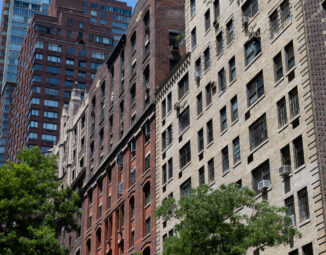Some Good News for Philadelphia Landlords with the “Good Cause” Provision
Developments in the approved “Good Cause” ordinance curtailing restrictions found in the proposed bill limiting landlords’ abilities to evict tenants and increase rents.
In an exercise of its authority to propose bills that become city laws or ordinances, many Philadelphia property owners and landlords were unsettled by the additional restrictions that would have been imposed on them by the City Council’s Good Cause provision proposing changes to the existing Unfair Rental Practices ordinance. Fortunately for property owners and landlords, the “Good Cause” provision was modified before it was finalized on December 6, 2018, and incorporated into the Unfair Rental Practices ordinance. Generally, landlords and property owners should find some relief in these modifications. The final “Good Cause” provision prohibits residential landlords from terminating certain leases upon expiration without advance notice and without “good cause.” This post discusses the major modifications between the proposed provision and the final provision that were incorporated into the city ordinance.
Concerns with the Proposed Bill
The most noteworthy modification between the proposed provision and the approved provision is that, while the proposed provision applied to all leases, the provision contained in the city ordinance only applies to leases for terms lasting less than a year. In theory, this city ordinance now serves to protect short-term renters from landlords seeking to evict for the sole purpose of increasing rent. Now, short-term renters are entitled to the landlord’s disclosure of a “good cause” for evicting them and they may even dispute the stated “good cause” with the Fair Housing Commission. The city ordinance defines “good cause” to include, among others: habitual non- or late-payment; breach of a material term of the lease; nuisance created by the tenant; substantial property damage; refusal to sign an extension of the lease agreement; and refusal to allow the landlord access to perform repairs.
One concern under the proposed provision was landlords’ abilities to renovate their buildings and/or increase rents to capitalize on Philadelphia’s booming rental market. The proposed provision specifically stated that landlords could not evict a tenant upon the lease’s natural expiration for the sole purpose of renovating the property in order to increase its fair market value. Presumably upon consideration of the constitutional rights this may violate, this restriction was edited out.
Moving Forward
In its simplest form, the city ordinance provides that landlords must give tenants notice in advance of the expiration of the lease’s term and essentially a “right of first refusal” to resume occupancy of the unit at the increased rate whether or not renovations are being performed in connection with the rent increase. The city ordinance now provides that the landlord must: (1) provide notice of non-renewal of the lease at least thirty to sixty days (depending on the length and type of lease) prior to the date it must be vacated; (2) return to the tenant any outstanding security deposit as promptly as possible prior to the date of move-out (excluding any justifiable itemized withholdings); and (3) provide the tenant with the option to renew the tenancy under the increased rate and, if renovations are being performed, offer the premises when it again becomes habitable.
Landlords and property owners may be frustrated by these additional burdens imposed against them, especially because the license procurement and disclosure requirements enacted in 2012 have been strictly enforced by the courts. While it is unfortunate for landlords and property owners that there are now additional regulations to be mindful of in order to maximize returns on investment, the regulations are significantly less burdensome than the original proposed provision and certainly not insurmountable with the proper legal counseling.



